Impulsive M3.6 solar flare erupts from Region 2423
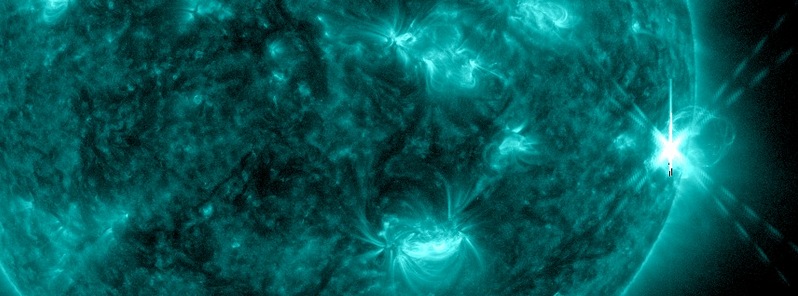
An impulsive solar flare measuring M3.6 at its peak time erupted at 03:55 UTC on September 28, 2015 from Active Region 2423 located near the west limb. The event started at 03:45 and ended at 03:59 UTC. Impulsive solar flares usually don't produce Coronal Mass Ejections (CME).
After M1.9 at 10:40 UTC and M1.0 at 20:54 UTC on September 27, both from geoeffective Region 2422, this is the third M-class solar flare in the last 24 hours.
There were no radio signatures associated with the M3.6 flare that would suggest a CME was produced. Even if it was, the location of this region is not favorable for Earth-directed CMEs.
Region 2423 has 'Beta-Gamma' magnetic configuration and is capable of producing more strong eruptions on the Sun. It will, however, soon start its farside rotation.
Solar activity is expected to be at low levels with a chance for M-class flares over the next three days (September 28 – 30).
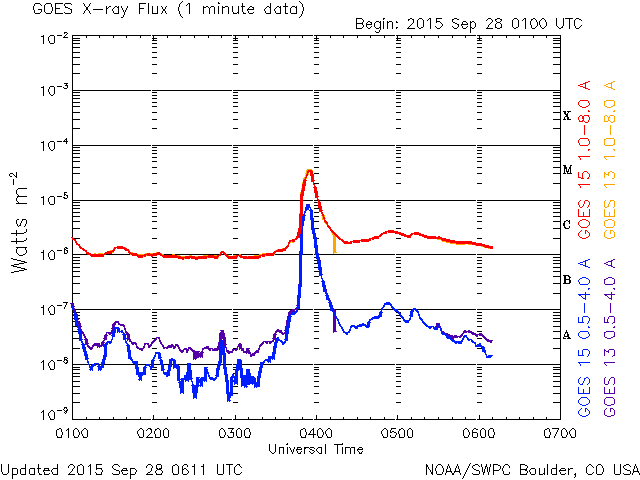
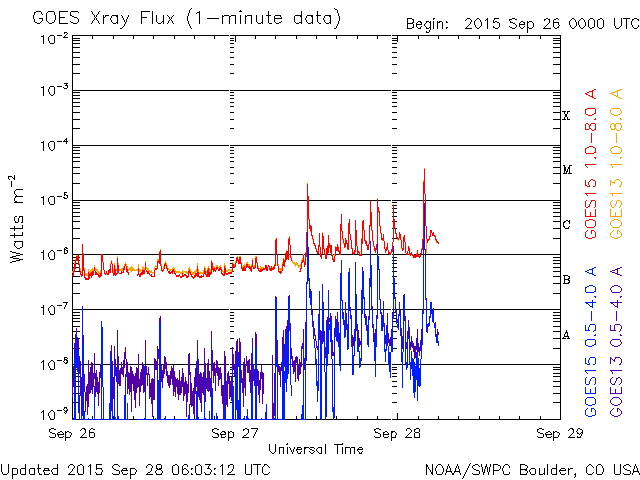
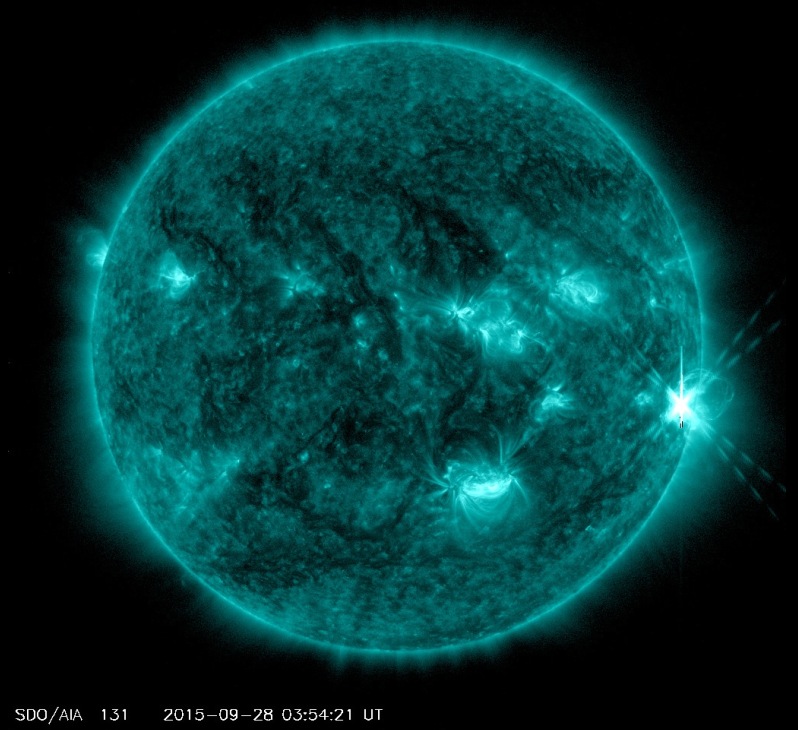
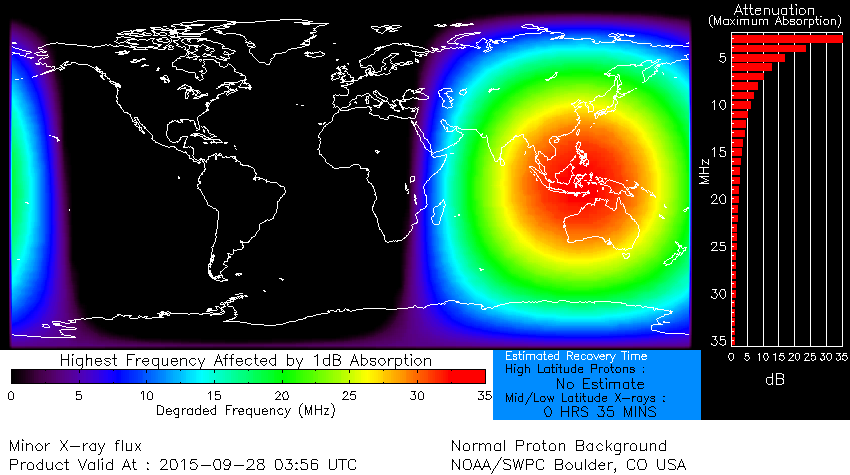
Global D-Region Absorption Prediction (D-RAP) at 03:56 UTC on September 28, 2015
There are currently 8 numbered sunspot regions on the Earth side of the Sun.
According to SWPC's Forecast Discussion issued 00:30 UTC on September 28, Region 2422 developed several more intermediate spots and exhibited consolidation in both the trailer and leader spots over the last 24 hours. Region 2423 underwent growth throughout the spot group seeing an increase in total spots along with an increase in overall coverage of existing spots. This region appeared to flare at the same time as Region 2422 during a few of the larger events of the past 24 hours but ultimately the flares were assigned to Region 2422 for records.
New region 2427 was numbered after producing several spots in the past 24 hours.
All other regions were relatively quiet and inactive.
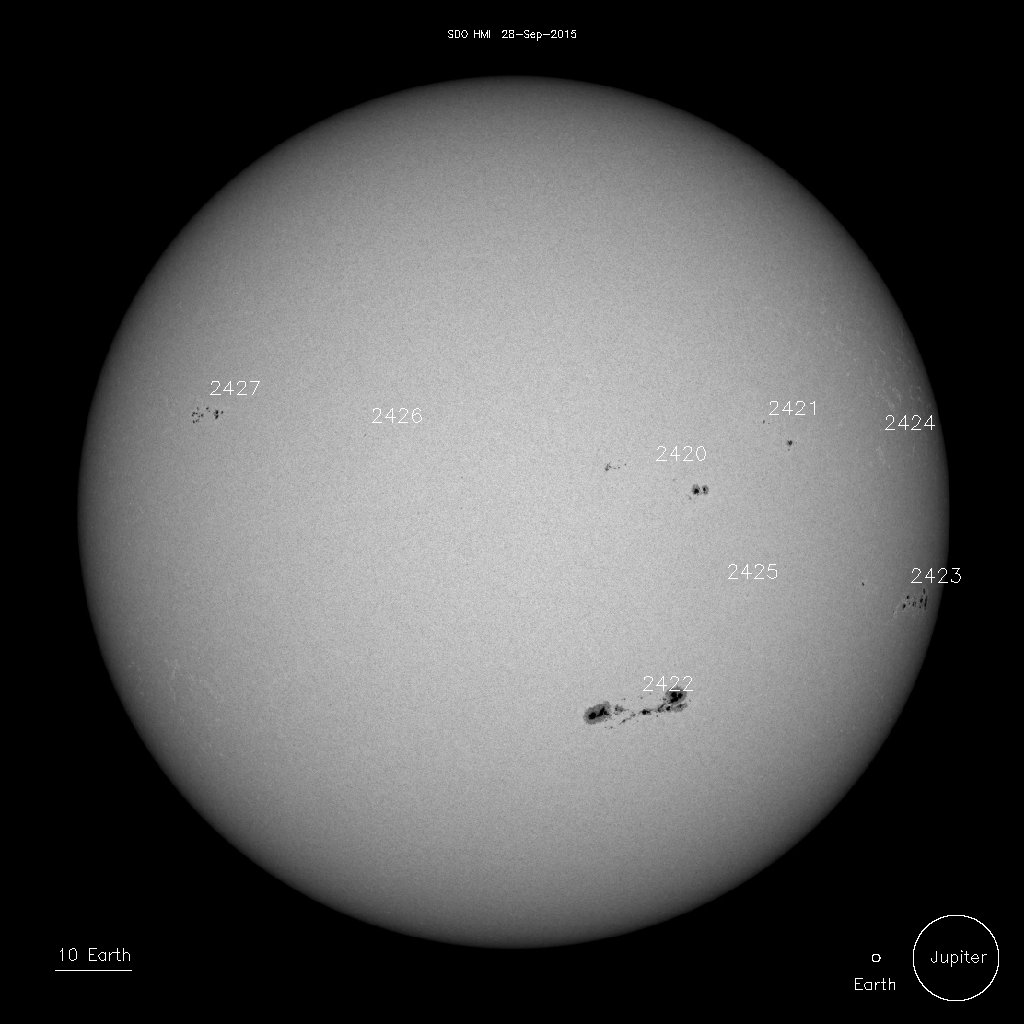
Sunspots on September 28, 2015. Image credit: NASA SDO/HMI
2420 – Beta
2421 – Beta
2422 – Beta-Gamma-Delta
2423 – Beta-Gamma
2424 – Alpha
2425 – Alpha
2426 – Alpha
2427 – Beta
The greater than 2 MeV electron flux ranged from normal to moderate levels over the past 24 hours. The greater than 10 MeV proton flux was at background levels.
Solar wind parameters were at nominal levels with solar wind speeds between 390 and 450 km/s.
The geomagnetic field is currently at quiet levels and is expected to be mostly quiet with isolated unsettled periods possible over the next three days (September 28 – 30).
Featured image credit: NASA SDO/AIA 131 at 03:54 UTC on September 28, 2015.

Commenting rules and guidelines
We value the thoughts and opinions of our readers and welcome healthy discussions on our website. In order to maintain a respectful and positive community, we ask that all commenters follow these rules.